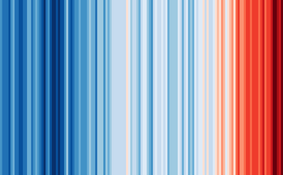In order to achieve the climate goals, educational actors play an essential multiplier role in the societal transformation. In research on climate education, the discussion of what the addressees of climate education, e.g. pupils or pre-service teachers, should know and be able to do, as well as the investigation of their content knowledge or climate protection actions, seems to be the main focus. Conversely, however, little is known about how these addressees evaluate their previous climate education and the role of their respective educational institutions in relation to climate protection.
Within the framework of a qualitative questionnaire study of 80 secondary school students and 18 pre-service teachers (B.Ed), we investigate the perceptions of both cohorts regarding 1) the importance and challenges of their role as potential "change agents" for the multiplication of climate change content, 2) the role of their educational institutions school and university for climate protection, and 3) which emotions climate education evokes in them.
Here you can find the current publication on the project:
Project participants: Veronika Winter, Andrea Möller
Cooperation partners: Johanna Kranz - Rhineland-Palatinate Competence Center for Climate Change Impacts (DE)
Professional Responsibility in the Climate Crisis: Teaching Climate Change
Project description: In the interdisciplinary education and cooperation project Climate Education4Future, per year about 90 pre-service biology teachers are trained as climate education multipliers. For this purpose, an innovative seminar concept was developed, which is evaluated in the context of intervention and interview studies. The core of the project is the cooperation with Scientists, Psychologists and Teachers For Future, which enables comprehensive preparation for the challenging teaching topic of climate change.
Here you can find the current publication on the project:
Chapter as PDF (Open Access): www.waxmann.com
Supplementary material as PDF (Open Access): www.waxmann.com
Project participants: Veronika Winter, Agnes Pürstinger, Andrea Möller
Cooperation partners: Johanna Kranz - Rhineland-Palatinate Competence Center for Climate Change Impacts (DE)

